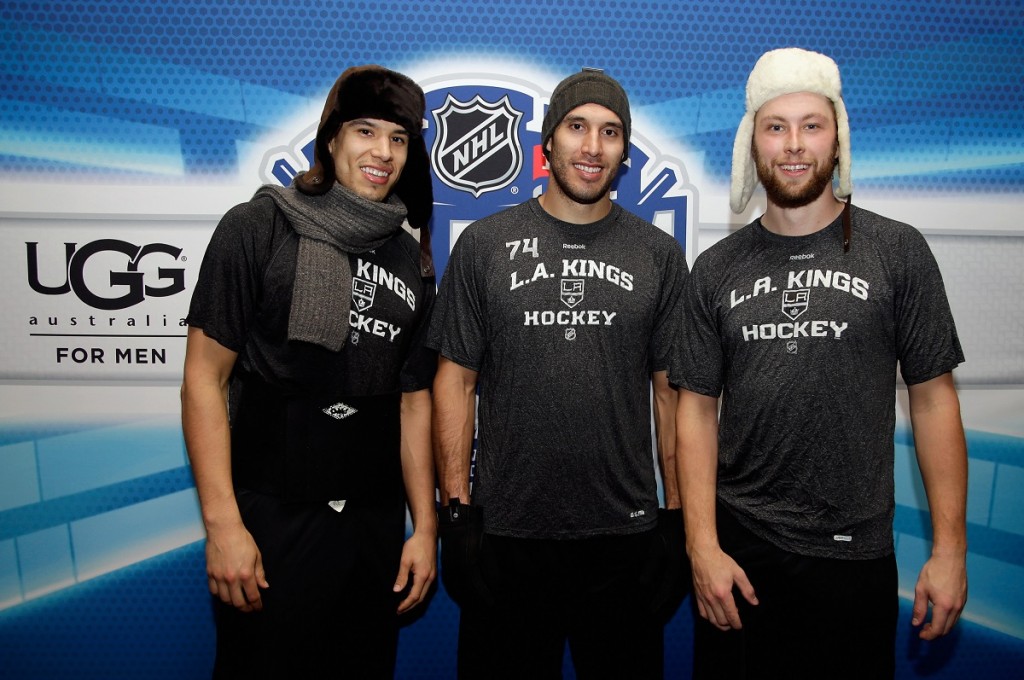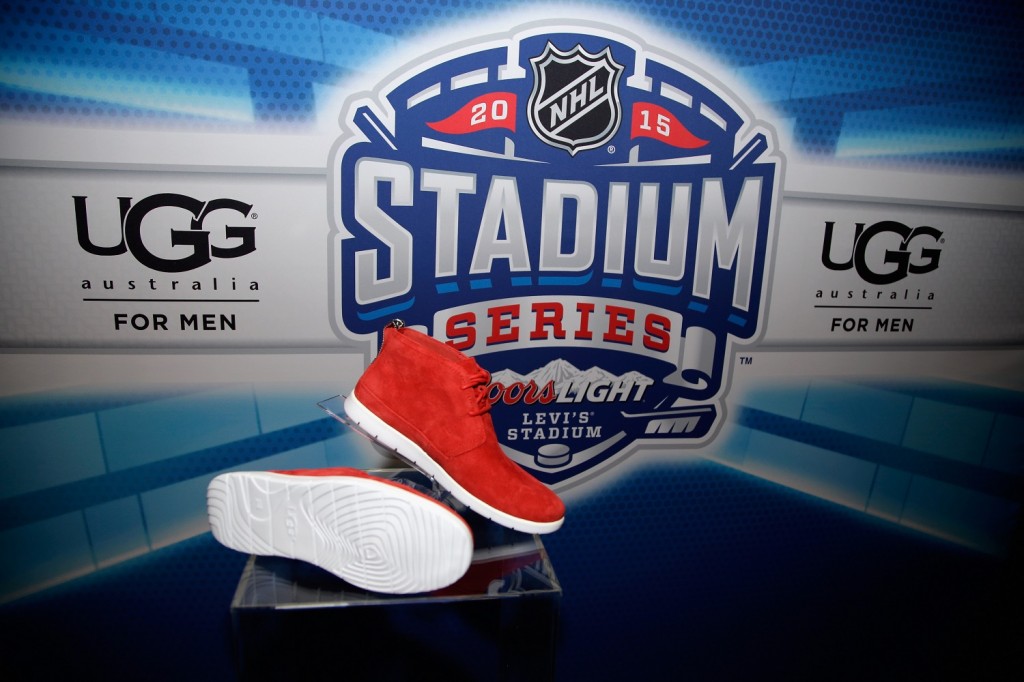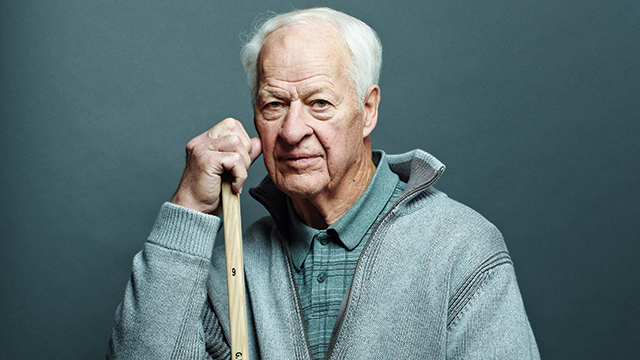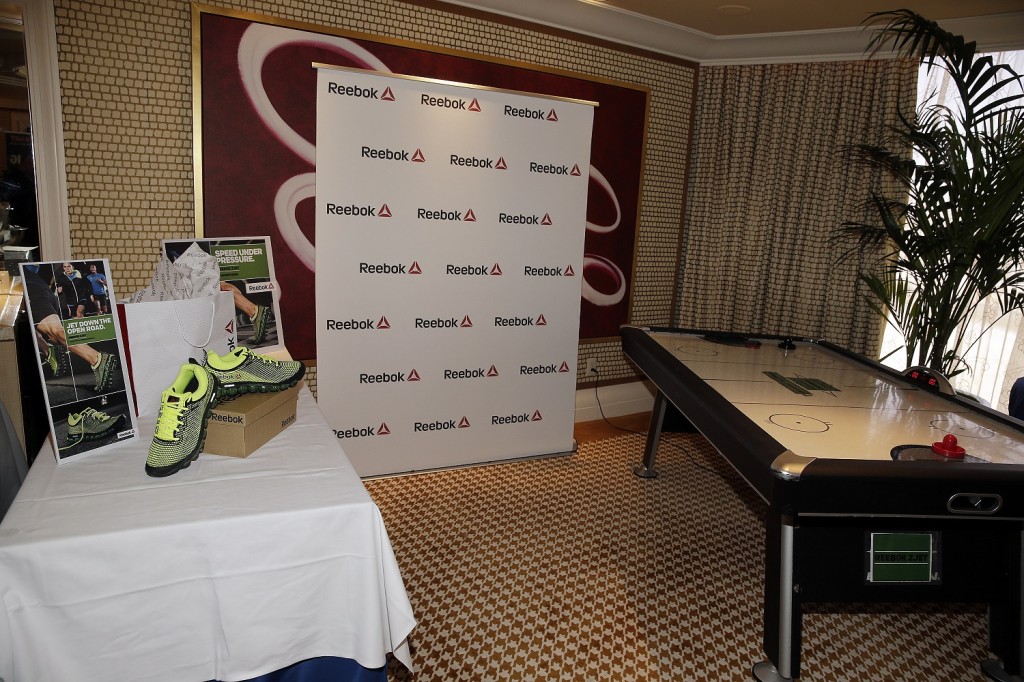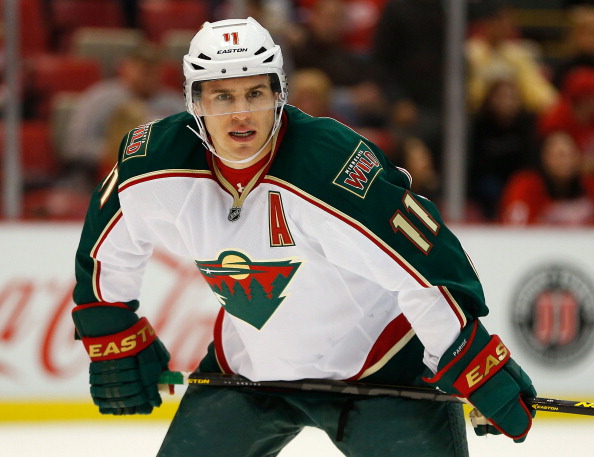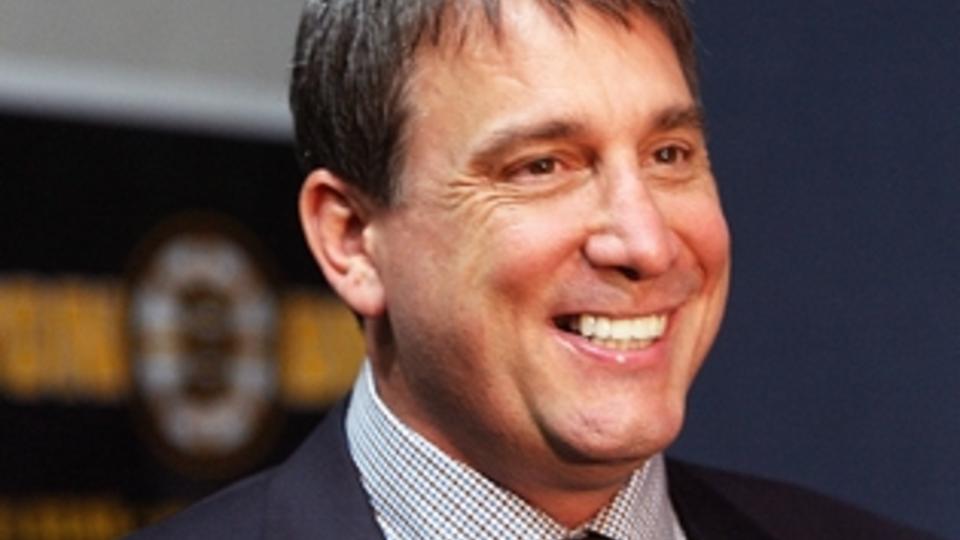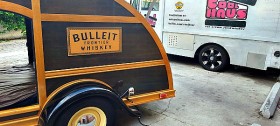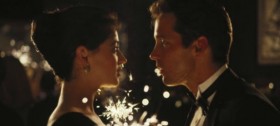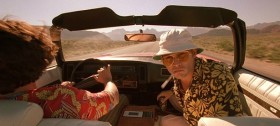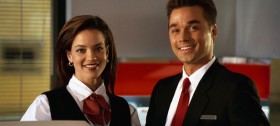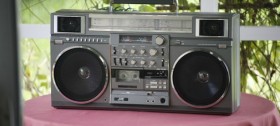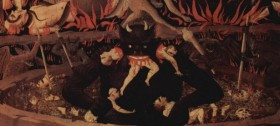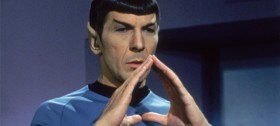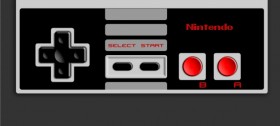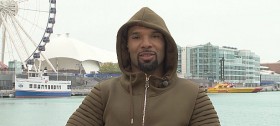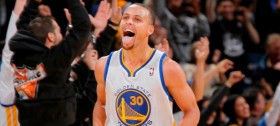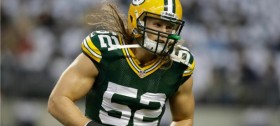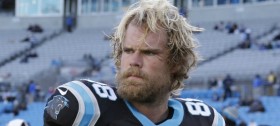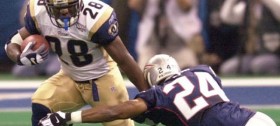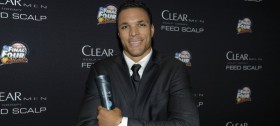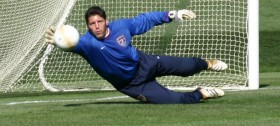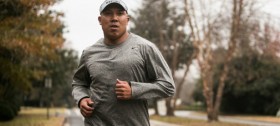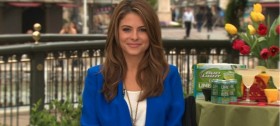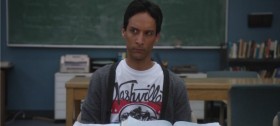Posts tagged NHL

LA Kings & San Jose Sharks’ First Look At Treadlite By UGG
This past week in a first of its kind partnership, UGG for Men partnered with the NHL on a VIP Gifting Lounge ahead of the 2015 NHL Coors Light Stadium Series Game at Levi’s Stadium in Santa Clara, CA. Players from both the LA Kings and the San Jose Sharks were given an advanced look of the Treadlite by UGG collection, a brand new lightweight but durable collection of casual footwear launching this month.
Notable players such as LA Kings Stanley Cup Champions Captain Dustin Brown, Drew Doughty, Marian Gaborik and Anze Kopitar took a moment to grab a stylish new pair, while checking out the innovative and flexible R-MAT technology of the Treadlite by UGG collection.
The San Jose Sharks’ Right Wing Brent Burns immediately gravitated towards the “Freamon” chukka style in bright red, while Tyler Kennedy, Melker Karlsson, Anti Niemi, and Joe Thornton all went with a more low profile black suede “Freamon” or grey canvas “Conley” slip-on to complement their off-ice style.
The debut collection features an extremely lightweight and durable outsole that leverages proprietary technology and offers increased cushioning, traction and flexibility. The innovation is helping UGG to redefine the “comfort casuals” category by infusing it with superior, lightweight technology. Treadlite by UGG™ will be available in men’s footwear at UGG Australia concept stores nationwide and on www.uggaustralia.com beginning this month.
Feb 23rd

Gordie Howe Shares His Life In Mr. Hockey: My Story
Big, skilled, tough on the ice, and nearly indestructible, Howe dominated both the sport and the record books like no one has before or since. Over an incredible six decades, the Hall of Famer had so many accomplishments that he set the record for the most records by any athlete ever in any sport.
I had the chance to read Mr. Howe’s autobiography before its release date. Whether you followed his career or are looking for an intriguing read than this book should be on your to buy list. “Mr. Hockey: My Life” does follow the traditional  autobiography theme. It starts from his early childhood and follows his career into the sport where he set numerous records.
autobiography theme. It starts from his early childhood and follows his career into the sport where he set numerous records.
Howe writes about the violence in hockey, his salary issues with the Red Wings, and the toll hockey took on his body. You get to see Gordie’s love for hockey, how he discovered it, and the countless hours he spent honing his craft. Howe even speaks on famous players like Bobby Orr and Wayne Gretzky in which he passed the torch too in the NHL.
Gordie doesn’t just talk hockey. I loved hearing his take in his family. You can see that his family meant so much to him. His wife, Colleen has some of her letters to him in the book. His sons Mark and Marty even played with him in the NHL, which was one Howe’s best moments in his career.
“I’ve often thought that some of the happiest years of my career came in Houston when I had the chance to play with my sons Mark and Marty. I wasn’t the player I was during the glory years in Detroit, but how many fathers get the chance to play professional with their kids? It’s what kept me going into my fifties.”
Right there alone just goes to show how fantastic the man was. This book is an addictive read and it was hard for me to put down. You will definitely enjoy this memoir for a hockey legend.
Even some hockey greats shared their thoughts on Mr. Howe.
“The greatest is Gordie—he’s my man.”—Bobby Orr
“The greatest one of all . . . still the greatest in my mind and in everybody else’s mind.”—Wayne Gretzky
The book is published through Putnam Books and is available on October 14th. You can pre-order the book on Amazon.com
Sep 27th

LA Kings Dustin Brown & Anze Kopitar @ 2014 NHL Awards
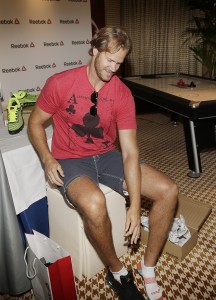 and Andrew Ference (Captain, Edmonton Oilers). Former players and broadcasters Rob Ray (Buffalo Sabres), Jody Shelley (Columbus Blue Jackets), Eddie Olcyzk (Pittsburgh Penguins) and Anson Carter (NY Rangers) also received a pair of new running sneakers to keep in hockey shape.
and Andrew Ference (Captain, Edmonton Oilers). Former players and broadcasters Rob Ray (Buffalo Sabres), Jody Shelley (Columbus Blue Jackets), Eddie Olcyzk (Pittsburgh Penguins) and Anson Carter (NY Rangers) also received a pair of new running sneakers to keep in hockey shape.Jun 25th
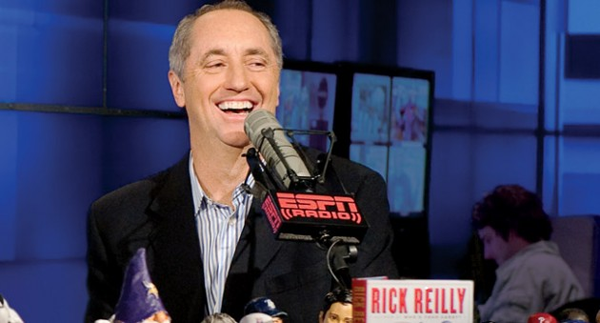
ESPN’s Rick Reilly Tells Us What To Expect From His New Book
Growing up in high school besides the text books and novels I had to read for school most of my reading material consisted of comic books. That was until I started reading Rick Reilly’s column in “Sports Illustrated.” Rick has a way of telling a story that perfectly intertwines sports and life. Rick has been voted NSSA National Sportswriter of the Year eleven times. He currently writes for ESPN, but will be stepping down from that role on July 1st.
On May 13 you can get his new book, “Tiger Meet My Sister: And Other Things I Probably Shouldn’t Have Said.” This book is a collection of his work that even has a postscript section after each story to let the reader know if anything has changed since he posted each story.
I had the pleasure to chat with Rick about his new book, how Muhammad Ali played many pranks on him, best and worst interviews, sports, and more.
Art Eddy: I am loving your latest book. The forward/obituary sections were amazing. I am guessing since you are a writer you may have written your obituary a few times right?
Rick Reilly: (Laughs.) When you have to write a weekly sports column, which I feel like I have been doing since I was 20, you just go through dozens and dozens of ideas every week. Sometimes they don’t work out. You kind of hide them. I have this file on my computer that has about 500 ideas. Out of those 500 ideas 300 of them have been started and then abandoned.
I have probably worked on my obituary about ten different times. I was thinking okay I got nothing else this week, so let me try the obituary. Finally I thought this would be the perfect forward because beginning July 1st I am giving up the sports column for 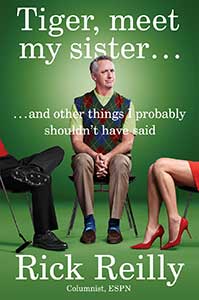 good. I am just going to write books. So I thought hell why not eliminate the middle man and write your own obituary. It was really fun. It was really fun to look back on your life and say it wasn’t that bad.
good. I am just going to write books. So I thought hell why not eliminate the middle man and write your own obituary. It was really fun. It was really fun to look back on your life and say it wasn’t that bad.
AE: The section where you talk about fortitude when small people act big was very inspiring. From all that you have seen which story will always stay with you?
RR: Over my career I have found that those are the stories that I like doing the best. When you write about small people doing big things and overcoming things. There was this kid I wrote about who refused to give up running for the cross country team. He was a high school kid. It took him 35 more minutes than his teammates because he had cerebral palsy. The right side of his body didn’t work. He kept falling. In cross country you are going over fields and streams.
His face was all scarred up from these falls. His parents begged him to quit. So did his coaches. He wouldn’t quit. Pretty soon his teammates would go out there and finish the race. Then they would go back a mile and a half and finish with him. Pretty soon the girl’s team started doing. Then the cheerleaders started doing it.
Then at the last meet that he ran the opposing teams did it. At the finish line it was a bunch of crying parents. That kind of column sticks with me. I would say that there are five of those in this book.
AE: You have a section in your book about how some of your articles got you into hot water. For those articles how do you make up your mind whether to publish a story or not?
RR: Truth. You try to tell the truth. Sometimes you fail and get it wrong. I think I have published over two million words in my 37 year writing career. So you are going to screw up. Especially if you are an idiot like me you are going to screw up a lot. So the times you regret the most is when you accidentally misquote someone. Or when you realize later when meet someone you didn’t paint the right picture of them.
Sometimes you get into hot water, but you would still do it again. I think of Sammy Sosa, who at the time around 1998, was saying that he couldn’t wait for drug testing. He couldn’t wait for steroid testing. He said, ‘I am going to show all you people 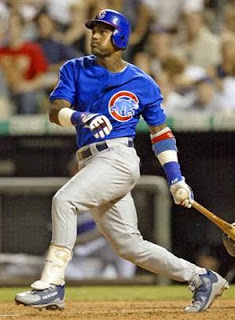 that my numbers are real.’
that my numbers are real.’
I said to him, ‘I found a drug testing lab ten minutes from Wrigley Field. You don’t have to wait for drug testing. Let’s do it now.’
He flipped out. He started screaming at me in Spanish. He started grabbing this baseball bat and threatening me. I was like hmm, someone doesn’t want to be tested. His point was about the (baseball players) union. It was sort of a mild post in a steroid story. He freaked out at the idea of being tested. As we know he did show up on a steroid failed test list. He shrunk by about 40 pounds as soon as he got out of baseball. His best friend was busted with 20 thousand dollars’ worth of steroids in the Dominican. I was in hot water for months over that, but I thought I was right.
AE: I have been a big fan of your work since I found your column in “Sports Illustrated.” Love the way you tell a story. How did you hone your craft as a storyteller?
RR: Thanks for saying that because I am 56 years old, but people come up to me like I invented the printing press. They will say, ‘I was 13 years old and that was the first reading I ever did. You taught me how to read.’
I am like come on. I am not “Dick meets Jane.” I was like you. The first really good reading I ever did was sports. It was a guy named Jim Murray. He was this great columnist for the “L.A. Times.” He wrote sentences that I have never seen before. They just jumped off the page and punched you in the nose. There were sentences and you would be like how did he do that?
I would read it over, over, and over again to see how he did it. It would be things like, ‘John Wooden is as square as a pan of fudge.’ Or things like, ‘Gentleman start your coffins.’ That is what he said once at the start of the Indy 500. This was a whole new way to write. That guy became my friend, my mentor, and my hero when I went to the “L.A. Times.” He said, ‘Make the writing 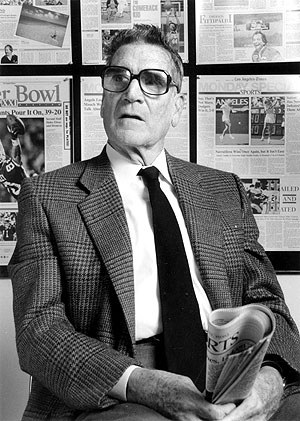 fun. There is no city ordinance. No one has to read you. They have got to want to read you.’
fun. There is no city ordinance. No one has to read you. They have got to want to read you.’
That was what stuck with me more than anything else. Make them want to read you. Make it fun. Don’t make it a job. That is how I tried to write from then on.
AE: Who has been the best person that you have interviewed and who has been the worst?
RR: Charles Barkley would be one through four. Then playing golf with Bill Clinton when he was the standing President was fascinating. I have never been around someone with that much charm, knowledge, and wit all wrapped in one. I know people think he is some kind of redneck hick, but this guy knew more about the world which I learned in four hours of golf. I thought he was really fascinating.
Another fascinating interview was with Mike Tyson. You didn’t know if you were going to get out of there with a punched eye or you were going to be his best friend or you were going to do crystal meth. You didn’t know if he was going to threaten you. You think anything could happen.
I always found him so fascinating because he was always so self-loathing. Yet in so many ways he was sort of an idiot savant. He knew more about Mao Tse-Tung and rebels in China and boxing, but he could hardly make his car payment.
So if you talk about most interesting interviews like Mohammad Ali when you would get him in the morning and he could still talk to you. He played tricks on you. One time he pretended to fall asleep during an interview with me. It was just me and him in this room. At that point I was like okay I guess I will just read this magazine. Two minutes later he dove across the couch and choked me. It was all a fake. So guys like that are things that I will never forget.
The worst. There have been so many bad interviews. Some people just start with a chip on their shoulder. Reggie Jackson started off that way. Sam Snead was terrible. What is funny is that some of these people who have never been interviewed are the worst. They say no comment. Dude you are really never going to be interviewed again so you better make a comment.
AE: Is there a person that you have tried to interview and to this day you are still trying to get?
RR: To this day and I can’t get him anymore was Johnny Unitas. The great quarterback would charge money for an interview. We weren’t ready to do it. Well I was ready to do it because I thought that alone was worth a column. That was a guy that I was never able to get. The companies that I worked for refused to do it. I can see why, but still. Wouldn’t it have been fascinating to interview Johnny Unitas and pay for the privilege?
AE: Recently you tweeted out that you are giving up your column at ESPN. How tough of a decision was that? 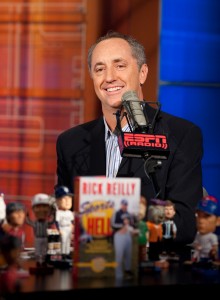
RR: Not tough. Not tough. I have been doing this for a living since I was 19 years old. It has always been sports. It has never been anything else. It is kind of like when a dog as an electric fence and finally the owner dies. The dog is like can I really leave this yard?
I could have left the yard about five years ago. I said okay I will go five more years and that is when I did this ESPN thing. I have been dying to try and write music, movies, politics, travel, and I want to do books. I have written 11 books. Three of them have been novels. I love the novels because the characters say stuff that you are laughing at the things that they are saying. And it is coming out of your fingers. So that is a really fun experience. We are going to live in Italy for six months. There is just a whole new life waiting out there for me. I am not dying. I am still going to write. I am certainly not going to write that much sports.
AE: Well maybe writing your obituary in this book might not have been the best thing since people might think you are dying.
RR: Yeah, they might really think that I am dead. A lot of them wish I were.
Apr 28th

Zach Parise Talks Hockey, Olympics, and Rivalries
Zach Parise followed his father’s footsteps by playing in the NHL. Zach was drafted by the New Jersey Devils in 2003 as the 17th overall pick. Parise then signed a 13 year contact with the Minnesota Wild where he currently plays the position of left wing. This move was sort of a homecoming for Zach since his dad, J.P. Parise played there and was the captain for the team who at the time was called the Minnesota North Stars.
Just recently Zach was named the captain for the 2014 U.S. Men’s Hockey team for the Winter Olympics in Sochi. He and his fellow teammates came up short winning a medal, but he will always remember his time in Sochi. 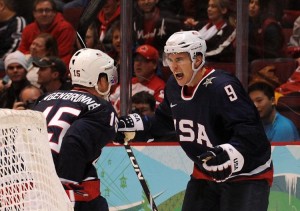
I was able to chat with Zach about the NHL, fatherhood, his Olympic experience including shooting a commercial with Chobani Greek Yogurt, and what lessons he learned from his dad before entering the league.
Art Eddy: The 2014 Winter Olympics are now a month behind you. What did you take away most from that experience?
Zach Parise: Unfortunately for us we left on a pretty sour note. We started off the tournament really well, but the way we ended with that loss to Canada and losing in the Bronze medal game to Finland was not what we had planned. We had some pretty high expectations over there.
The whole experience was awesome. There was a lot of fun. They did such a good job. The Russians did a great job of running the Olympics. I know all the stuff that was on the TV and the media before, but it was such a good experience. It was a lot of fun.
AE: The commercial you did with Chobani Greek Yogurt was pretty cool. How did working with Chobani come about?
ZP: They are one of our major Olympic sponsors for Team USA. They were looking for an Olympic athlete, well a hockey player in particular. We have a great relationship with them now. The commercial thing was one of the first times that I have done a commercial like that. It is amazing to see what goes into it.
It took us about 12 hours to film it. It was cool to see how they do everything and how many times you have to do the same thing over and over again, but it was really fun.
http://www.youtube.com/watch?v=r22DMJLRkRI&list=PLqmZKErBXL-M1v3JiejaMnCzu2rdFebo6
AE: Now switching to hockey is there a team that gets you more hyped when you see them on the schedule than any other team?
ZP: When I was playing in New Jersey you have those special rivalries. It was always us and the Rangers. Those games were so intense. I think we played them three times in the playoffs when I was there. Here in Minnesota we are starting to establish ourselves as a pretty good team. We are going to have some good rivalry games with the Jets and also 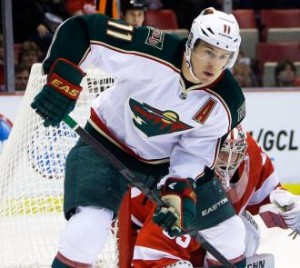 Chicago with just how close we are.
Chicago with just how close we are.
AE: Besides playing at home, which city do you like to play in?
ZP: Going to play in Montreal is always fun. The crowd is so good. To experience the excitement in the building is unbelievable. That is probably one of my favorite places to go play a game. It is a great atmosphere in the rink.
AE: Your dad, J.P. Parise made a name for himself in the NHL. What advice did he give you when you entered the league?
ZP: I think that his biggest thing was to enjoy it. He told me at the time of my first year that how quickly my career will fly by. At the time I was thinking okay I am 21 years old and it won’t go by fast. Then all of a sudden I look today and I have been in the league for almost nine years. Then I was like he was right. He wanted to make sure that I enjoyed it and had fun playing.
It seems simple, but it was great advice. You go through so many ups and downs throughout your career. It is always good to take a step back and take a look at your career and see where you are and where you have come from.
AE: You have played in the NHL for about eight years now. How has your game evolved since coming into the league? 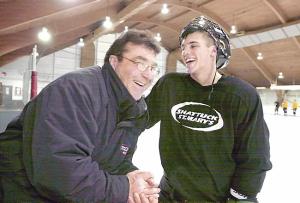
ZP: I think you learn a lot as you get older. You learn a lot mentally how to keep an even keel throughout a season. You go through so many different stretches where things are going right and everything seems to go in. Then there are times where nothing you do goes right.
As I have gotten older I kind of learned to keep a level head throughout the season. Not get too excited when things are good or not get upset when things aren’t going so good. I think that is probably the biggest thing I have learned.
Mar 26th

Cam Neely Interview
Cam Neely had an outstanding playing career in the NHL. He played 13 seasons for the Vancouver Canucks and Boston Bruins. Most of his playing career was in a Bruins uniform. In 2005 he was inducted into the Hockey Hall of Fame. Currently Cam serves as the president of the Boston Bruins. Cam was instrumental in organizing the Bruins 2011 Stanley Cup Championship.
Cam set up The Cam Neely Foundation. He set this foundation up to help those who are battling cancer and assist their family members as well. Neely lost both of his parents to cancer. Cam knows the pain of seeing a loved one battle this disease. He and longtime friend, Denis Leary work together to run their annual “Comics Come Home” comedy night that raises money for Cam’s foundation.
Neely also has been in a few TV shows and most notably played the cult classic role of Sea Bass in the movie “Dumb and Dumber.”
Cam was gracious enough to take the time to talk with me about the current state of the NHL, his playing career, his work as the president of the Bruins, and his role in “Dumb and Dumber.”
Art Eddy: First off let’s talk a bit about some of the possible changes to the NHL. Most notably the change to overtime play. What is your take on the possible change to overtime?
Cam Neely: I am not a fan of the shootout. I have never been a fan of the shootout. So if we can decide a game before we get to a shootout I am all for it. If we get into a three on three there will be a lot of scoring opportunities and you will be able to finish out a game.
My feelings are if we can figure out to do a four on four for a period of time and then get into a three on three it should work. If there is no score to settle a game after a three on three then go onto a shootout. I do feel that there will be plenty of scoring opportunities to finish a game if we can go three on three.
AE: In your great career was there one moment or playing against a certain rival that sticks out the most in your mind?
CN: I really enjoyed playing against Montreal. It is such a rivalry. When I first got to Boston it was always a big deal when you went and played Montreal. Whether it was in Boston or in Montreal, which I really enjoyed playing in Montreal, it is such a great hockey atmosphere. Like I said it was a huge rivalry and so everybody was up for those games.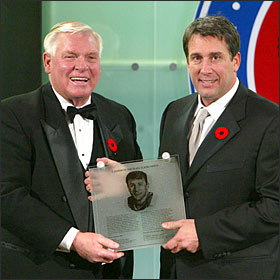
AE: In 2005 you were inducted to the Hockey Hall of Fame. When you were notified of your induction what was your initial reaction?
CN: Just shock in the sense that you are put in a place with these guys where you looked up to for years and years and years playing the game of hockey. You also think about the people who helped you along the way. It is just quite an honor. I felt very honored to be inducted to the Hockey Hall of Fame.
AE: You are now the president for the Boston Bruins. Has being a player helped you out with your current position?
CN: I believe it has. I can certainly look at a lot of situations with our players and think like a player. So that is beneficial. Playing in the league as long as I did and going through a lot of things as a player I certainly reflect back on that.
I know that the game is a little different and times have changed, but bottom line is that you are still a hockey player. I can reflect on a lot of those things whether it is playing a lot of games in a short period of time or having some time off. Now I think about what it would be like for a player now that I have the experience. Being able to look back and think about some moments in time where I had some questions, but didn’t have the answers.
AE: As someone who lost a parent to cancer and I know you lost both of your parents, I want to thank you for setting up The Cam Neely Foundation. How did your foundation come to be?
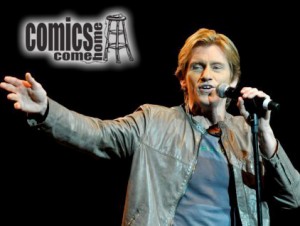 CN: Well as most people know being an athlete you get to help out in various ways and different charities. When I was going through what I was with my parents I gravitated towards more cancer related causes. Then I figured why not do something I know is needed based on my experience my family had with my parents.
CN: Well as most people know being an athlete you get to help out in various ways and different charities. When I was going through what I was with my parents I gravitated towards more cancer related causes. Then I figured why not do something I know is needed based on my experience my family had with my parents.
For us we wanted to find a way to provide comfort, support, and hope to cancer patients and their families. Being a family member of a cancer patient as I am sure you know going through with one of your parents is that there not really a lot you can do. The doctors really don’t fill you in too much. They don’t give you too much information of what is going on. You feel kind of left out, but you are still affected by that terrible disease. So that is the reason why I decided to start up the foundation.
AE: You and Denis Leary have the great “Comics Come Home” fundraiser that has a tremendous lineup of comedians. This year’s event just happened. How did it go?
CN: We say this every year, but this year it was said by many that this was the best show. It was a fantastic show. First of all I have to commend and give Denis and Apostle Pictures a ton of credit. They go above and beyond. They put this line up and great show together. It is really a fantastic way to take your mind off for a couple of hours of some of the things that you are dealing with and also raise money for cancer patients and their families. It is a nonstop laugh fest. It is a great way to raise money.
AE: Lastly outside of hockey fans, what do you get recognized more for? Is it your great hockey career or your amazing role as Sea Bass in “Dumb and Dumber?” 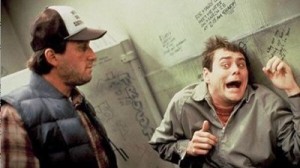
CN: (Laughs.) It is really a combination. Hockey more, but I do hear a lot of “Kick his ass Sea Bass” while I am walking the streets now and then.
Nov 25th
